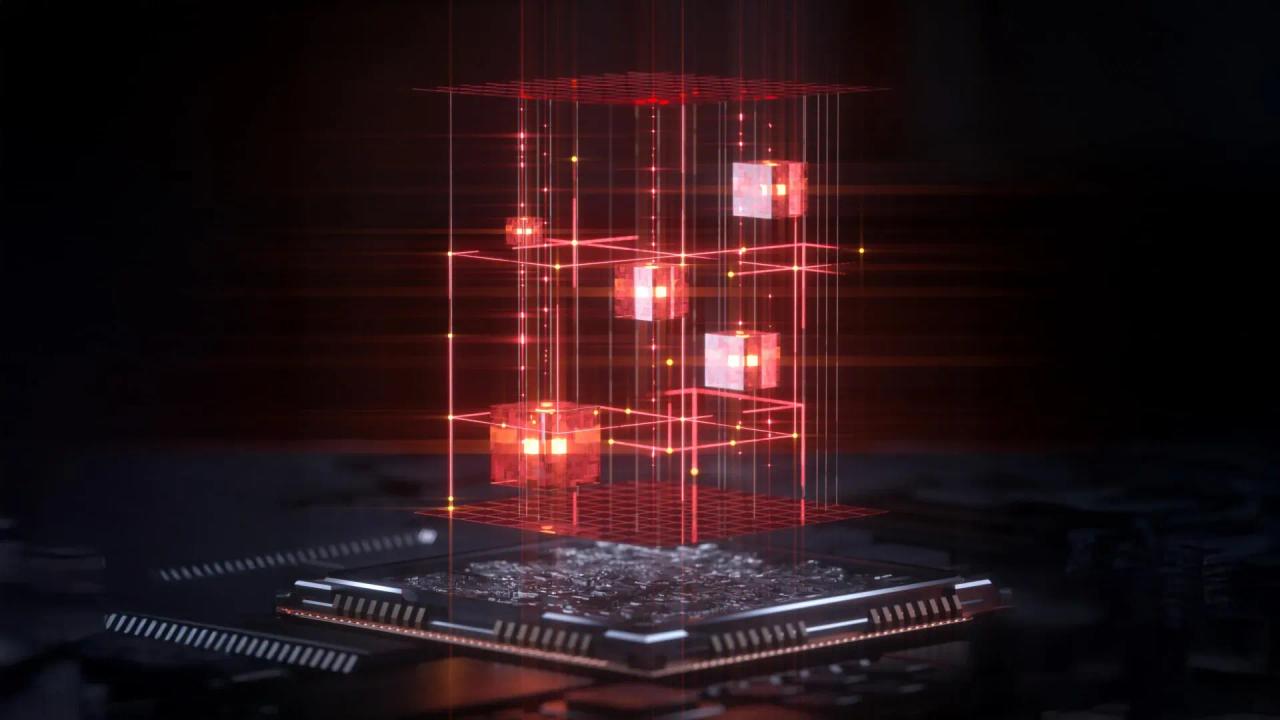Revolutionary Light-Based AI Chip: Smaller Than a Speck of Dust, Faster Than Traditional Computing
3 Sources
3 Sources
[1]
Scientists create revolutionary light-based AI chip smaller than a speck of dust
TL;DR: Engineers are exploring AI to advance scientific fields, with a new AI chip using light for faster, energy-efficient calculations. Engineers are attempting to discover new ways to leverage AI to make breakthroughs in various scientific fields, and one may have just happened that harnesses the power and speed of light. Researchers have penned a new study published in Nature Photonics that builds upon an earlier concept initially unveiled in 2018, where researchers showcased the power of diffractive neural networks. For those who don't know, traditional computing is comprised of electronic circuit boards, and while extremely powerful in their own right, they do have limitations or concessions users must make. Electronic circuit boards have inherent latency as it takes time for the data to be moved. Additionally, this process can be extremely energy-demanding. However, researchers have designed a new AI chip that manipulates light as it's capable of performing the calculation instantly versus a traditional computer that has to interpret light. As light travels through the new AI chip, it's directed, significantly speeding up the transmission process of data and also reducing the power needed for a calculation to be completed. While being a ground-breaking design that has many implications for numerous fields of computing, the new light-manipulating AI chip does face significant problems, and that is scaling it at the product. What the light-based AI chip is currently producing According to the researchers, the chip is made with a fixed design, meaning it will need to be customized for an individual task. Unfortunately, engineers won't be able to just produce 100,000 of these chips and roll them out globally, they will need to be made one by one, and specifically designed for the process they will be undertaking. "As the tasks change or the fibre-optic system changes, one would need to have a new design to be fabricated and integrated with the fibre," says Aydogan Ozcan at the University of California, Los Angeles At the moment, the new AI chip can process data flowing through fiber-optic cables as fast as light travels through each of the layers, which means the computations can be performed within trillionths of a second.
[2]
This AI chip is the size of a grain of salt
Fiber optic cables have a bottleneck problem. Although they're capable of transporting encoded data at the speed of light, translating the encoded data into understandable information often requires slower, much more energy-hungry equipment. Building off of previous innovations in a field known as passive neural networks, however, a team at China's University of Shanghai for Science and Technology (USST) is developing a microscopic workaround: A new artificial intelligence chip that utilizes light physics to analyze data using only a fraction of the energy. What's more, each chip is barely the size of a grain of salt. The recent advances, detailed in a study published in the journal Nature Photonics rely on a form of neural networking first developed by researchers at the University of California, Los Angeles in 2018. Known as an "all-optical diffractive deep neural network," this method uses patterned, 3D-printed layers of passive components that are precisely stacked together. The system is then trained to complete complex computations utilizing photons of light. As New Scientist explains, the USST team recently used this concept as their starting point to create a "passive, well-trained neural network" that physically maneuvers light to perform computational analysis. All that data-encoded light, however, is conveyed through fiber optic wires no wider than a single human hair -- so they needed their AI chip to be just as tiny in order to read each photon. Researchers relied on "three-dimensional two-photon nanolithography" to construct each miniscule chip using ultrathin polymer layers. They then attached a chip to the end of a fiber optic wire, where it processed data as it passed through the cables at the speed of light. To test the invention, the team encoded images of numerals into light photons, then sent them through the fiber optic wires. The AI chips then successfully read the data and recreated each number image with minimal fuzziness. This kind of image recognition is now a rudimentary function in many AI systems, the salt-sized chips managed to do so in trillionths of a second. They also do so using only a few thousandths of the amount of energy as today's AI-based image recognition technology. The system is by no means perfect just yet. The slightest chip imperfections can degrade the overall system, and each chip must be specifically customized depending on the job needed. Still, the inventors believe the technology could eventually provide "unprecedented functionalities." These might include situations such as endoscopic imaging and potentially even for quantum computing.
[3]
AI chip smaller than a grain of salt uses light to decode data
A tiny chip on the tip of a fibre-optic cable can passively harness light to perform AI computations, dramatically reducing the amount of energy and computing power required An AI chip smaller than a grain of salt can perch at the end of an optical fibre, harnessing the physics of light to process the information passed through the fibre - while using far less energy and computational power than typical AI techniques. Optical fibres can carry data at the speed of light, but decoding these light signals usually happens on a slower and more energy-intensive external computing device. The new AI chip could perform that data-processing task more...
Share
Share
Copy Link
Scientists have developed a microscopic AI chip that uses light to process data from fiber-optic cables, promising faster computations with significantly less energy consumption than traditional electronic systems.

Breakthrough in AI Chip Technology
Researchers have developed a revolutionary AI chip that harnesses the power of light to process data, marking a significant advancement in computing technology. This microscopic chip, smaller than a grain of salt, promises to overcome limitations of traditional electronic circuits by performing calculations at the speed of light
1
2
.How the Light-Based AI Chip Works
The new AI chip manipulates light to perform calculations instantly, as opposed to traditional computers that need to interpret light signals. As light travels through the chip, it's directed in a way that significantly speeds up data transmission and reduces power consumption
1
.This innovation builds upon the concept of diffractive neural networks, first introduced in 2018. The chip utilizes "all-optical diffractive deep neural network" technology, which employs patterned, 3D-printed layers of passive components stacked together
2
.Impressive Performance and Energy Efficiency
According to researchers, the light-based AI chip can process data flowing through fiber-optic cables as fast as light travels through each of its layers. This allows computations to be performed within trillionths of a second
1
3
.The chip's energy efficiency is particularly noteworthy. It uses only a few thousandths of the amount of energy required by today's AI-based image recognition technology, potentially revolutionizing the field of energy-efficient computing
2
.Fabrication and Testing
The team at the University of Shanghai for Science and Technology (USST) used "three-dimensional two-photon nanolithography" to construct each minuscule chip using ultrathin polymer layers. They then attached the chip to the end of a fiber-optic wire for testing
2
.In their experiments, researchers encoded images of numerals into light photons and sent them through fiber-optic wires. The AI chips successfully read the data and recreated each number image with minimal distortion, demonstrating their capability in basic image recognition tasks
2
.Related Stories
Challenges and Limitations
While groundbreaking, the technology faces some challenges:
-
Scaling for mass production: The chips need to be customized for individual tasks, making large-scale production difficult
1
. -
Sensitivity to imperfections: Even slight chip imperfections can degrade the overall system performance
2
. -
Task-specific design: As tasks or fiber-optic systems change, new designs need to be fabricated and integrated
1
.
Potential Applications
Despite these challenges, the inventors believe this technology could provide "unprecedented functionalities" in various fields:
-
Endoscopic imaging: The chip's small size could revolutionize medical imaging techniques
2
. -
Quantum computing: There's potential for application in this cutting-edge field of computing
2
. -
Data centers and telecommunications: The technology could significantly improve the efficiency of data processing in these sectors
3
.
This breakthrough represents a significant step forward in AI and computing technology, potentially paving the way for faster, more energy-efficient data processing in the future.
References
Summarized by
Navi
[2]
[3]
Related Stories
Recent Highlights
1
ByteDance's Seedance 2.0 AI video generator triggers copyright infringement battle with Hollywood
Policy and Regulation

2
Demis Hassabis predicts AGI in 5-8 years, sees new golden era transforming medicine and science
Technology

3
Nvidia and Meta forge massive chip deal as computing power demands reshape AI infrastructure
Technology







